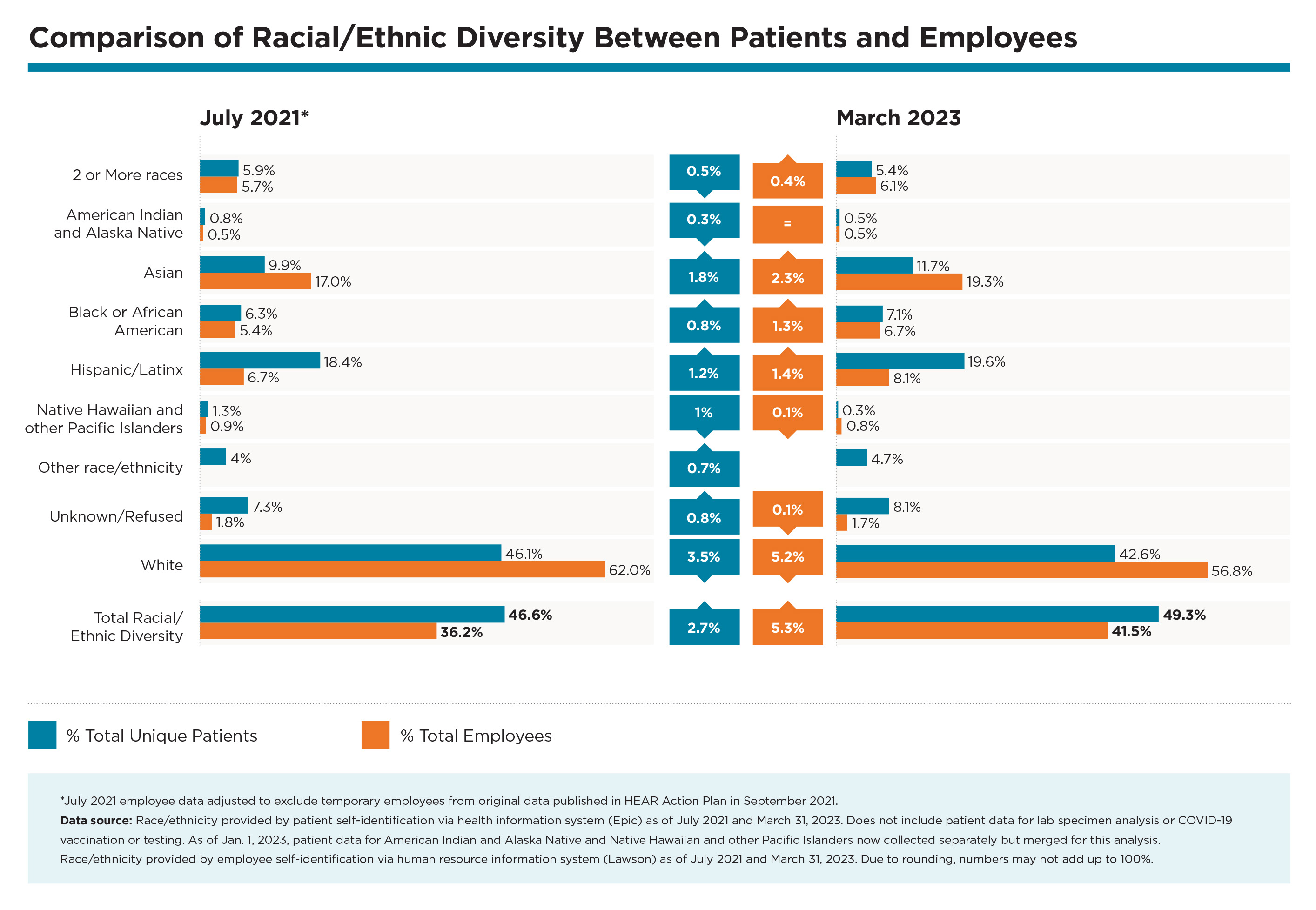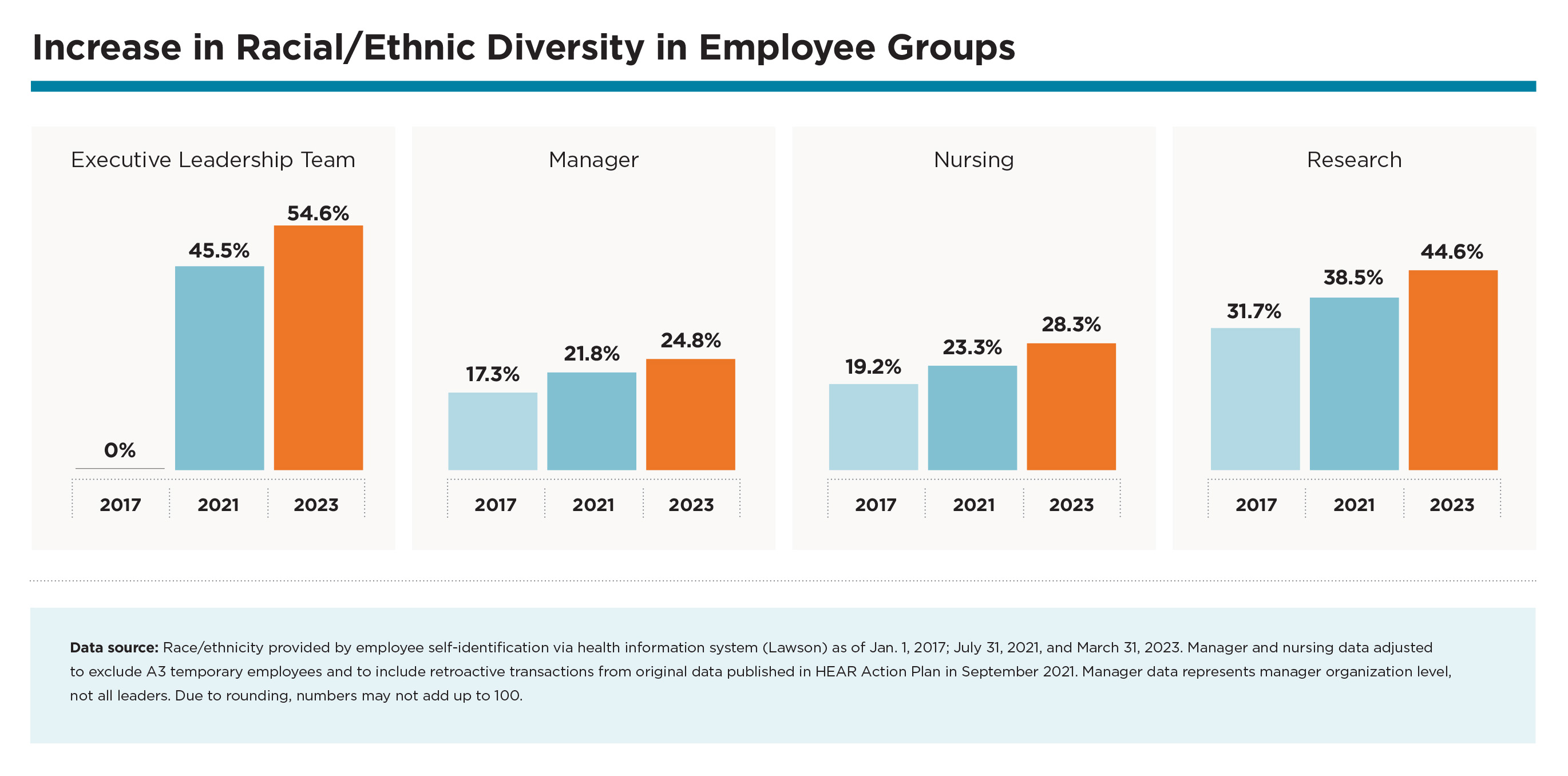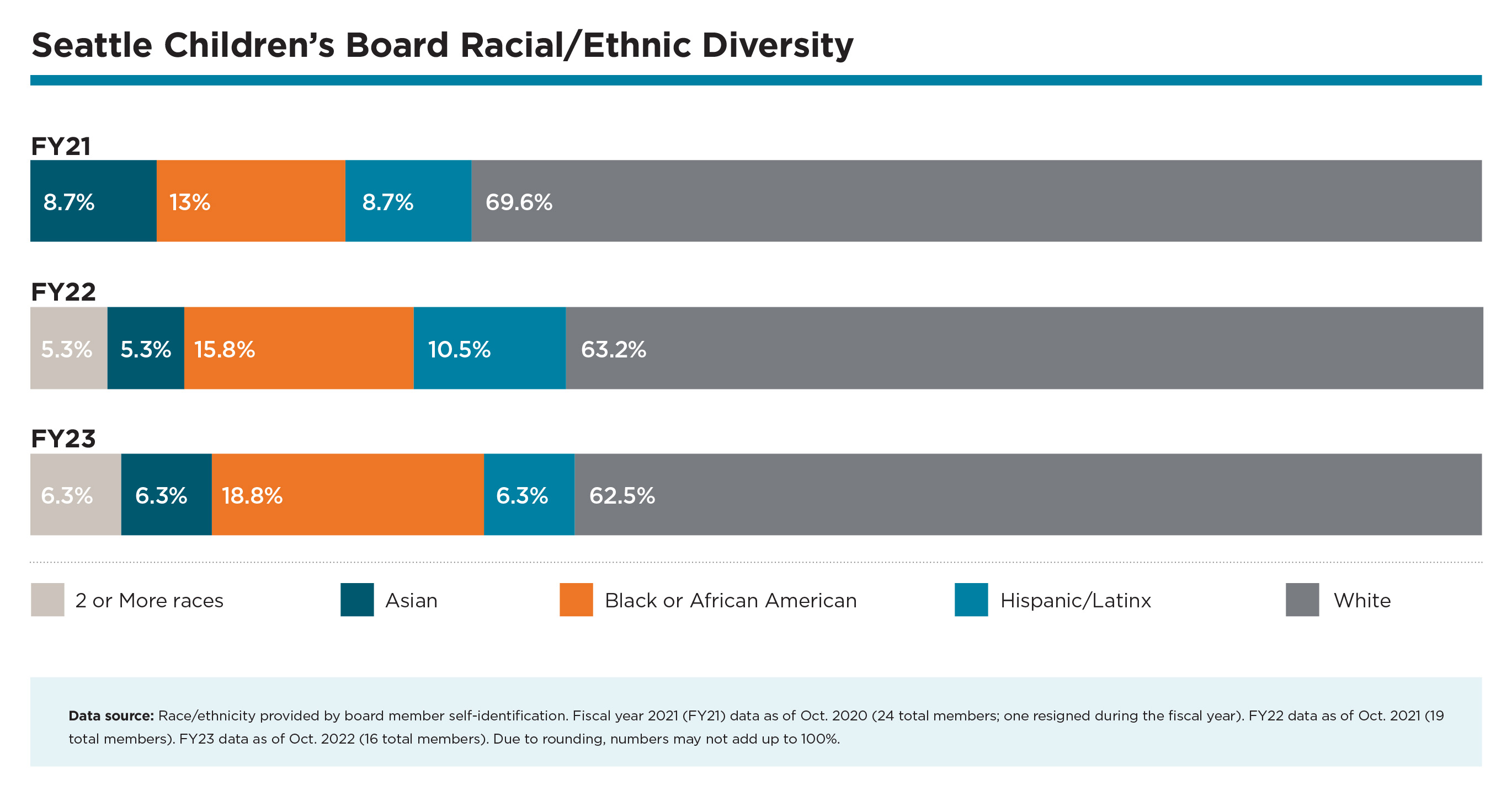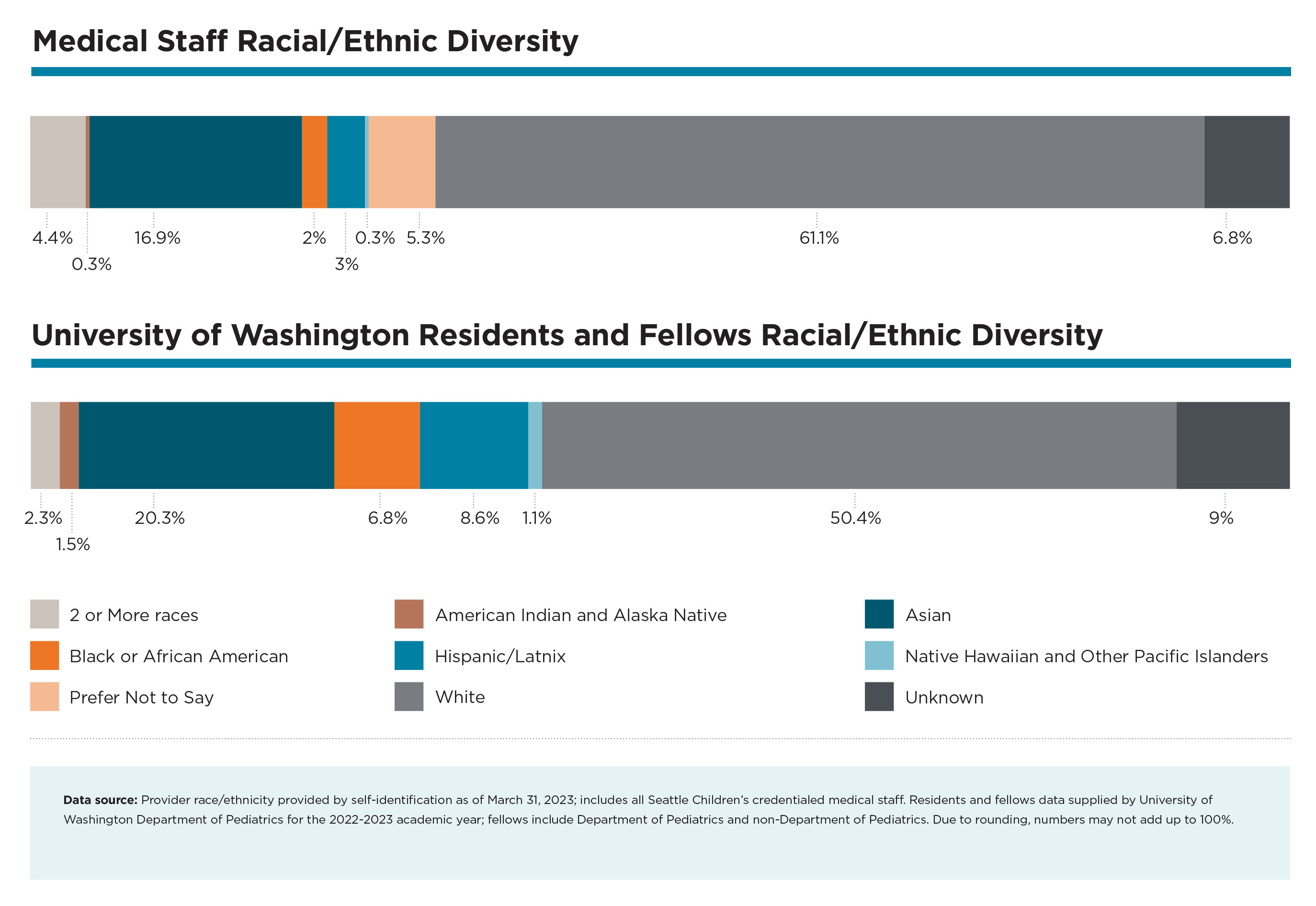
Commitment to Health Equity and Anti-Racism
Health Equity and Anti-Racism Action Plan
A group of committed workforce members created the Health Equity and Anti-Racism Action Plan to prioritize the most powerful actions to address systemic racism within Seattle Children’s from late 2021 through 2024.
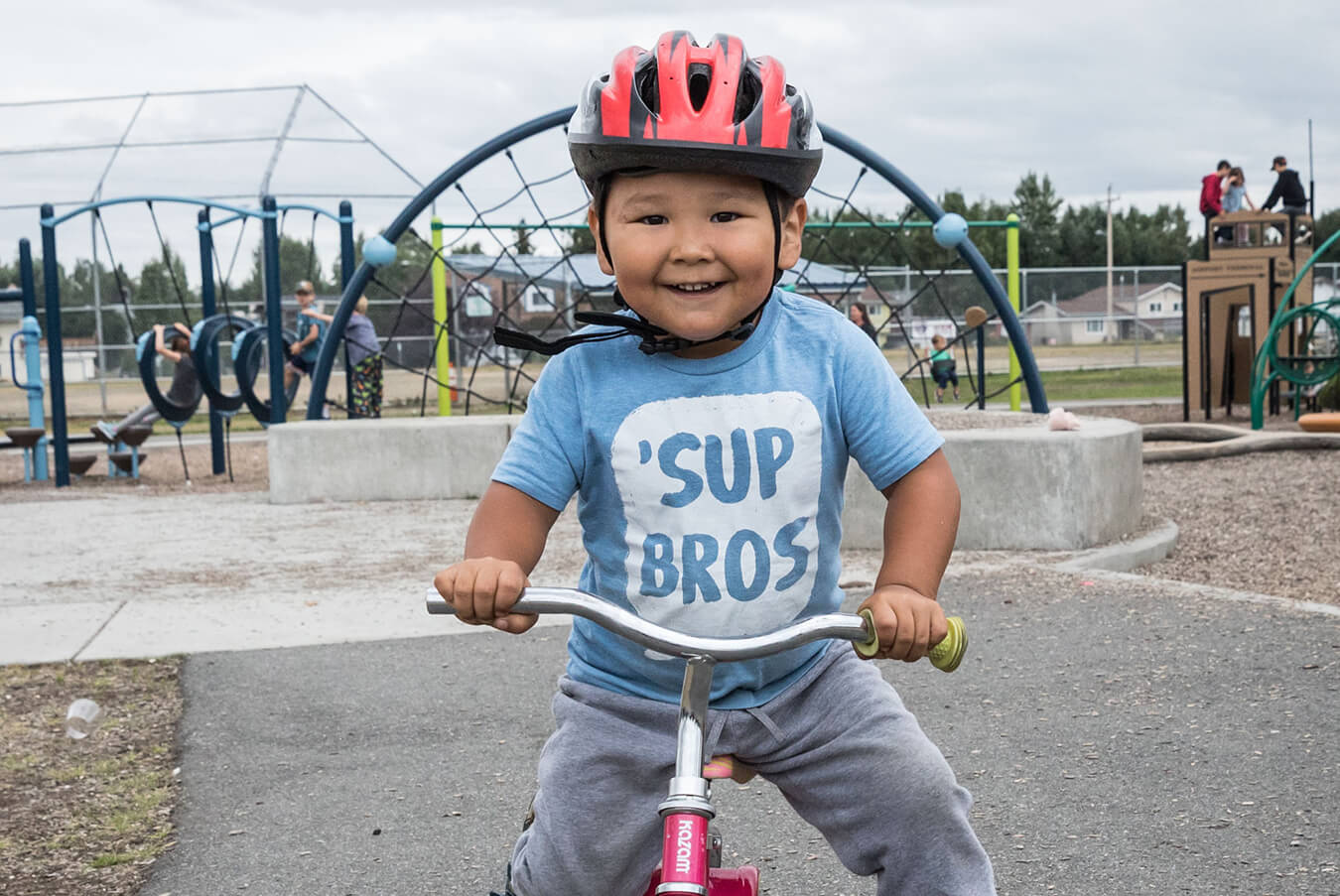
What is anti-racism?
At Seattle Children’s, anti-racism means that we actively identify, challenge and change the culture, structures and behaviors that perpetuate systemic racism. Being anti-racist requires urgency and stamina.

What is health equity?
Health equity means that everyone has a fair and just opportunity to be as healthy as possible. This requires removing barriers to health including access to quality, equitable healthcare. Learn more.
Taking Action
The Seattle Children’s Health Equity and Anti-Racism Action Plan has eight outcome measures for fiscal year 2023. Learn more about Seattle Children’s commitments over the next few years.
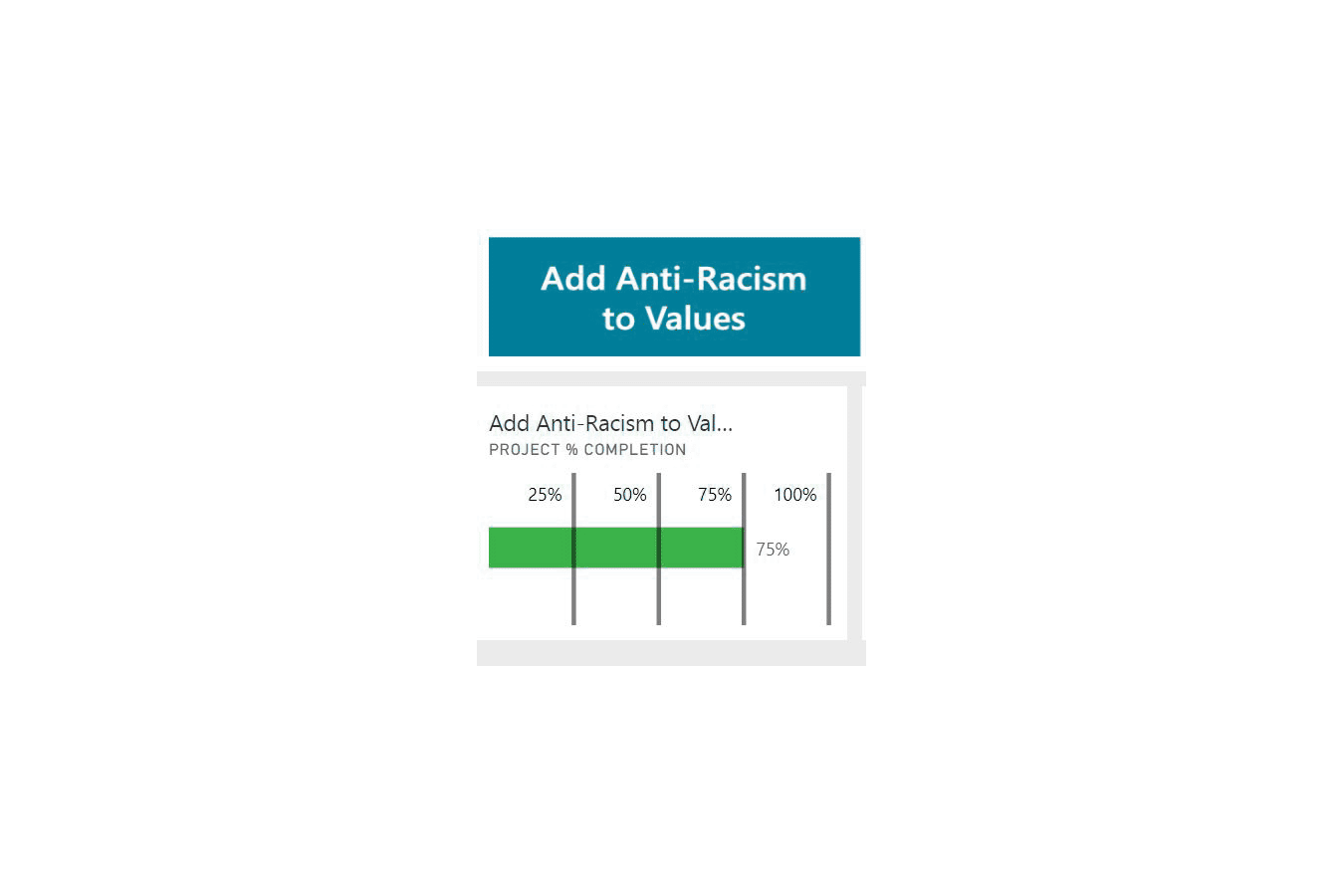
Add Anti-Racism to Values
Outcome measure
Update Seattle Children’s values to include anti-racism to hold leaders and workforce accountable through the performance evaluation process.
May 2023 progress update
After compiling feedback from the HEDI Council and Inclusion Network leaders, updates were made to values-based behaviors and leadership qualities to incorporate anti-racism. The updates were approved by the Executive Leadership Team in July 2022. In March 2023, updates were shared with leaders first and subsequently with the workforce, including tools and resources. FY23 performance evaluations will incorporate the revised values-based behaviors and leadership qualities, emphasizing anti-racism and inclusion.
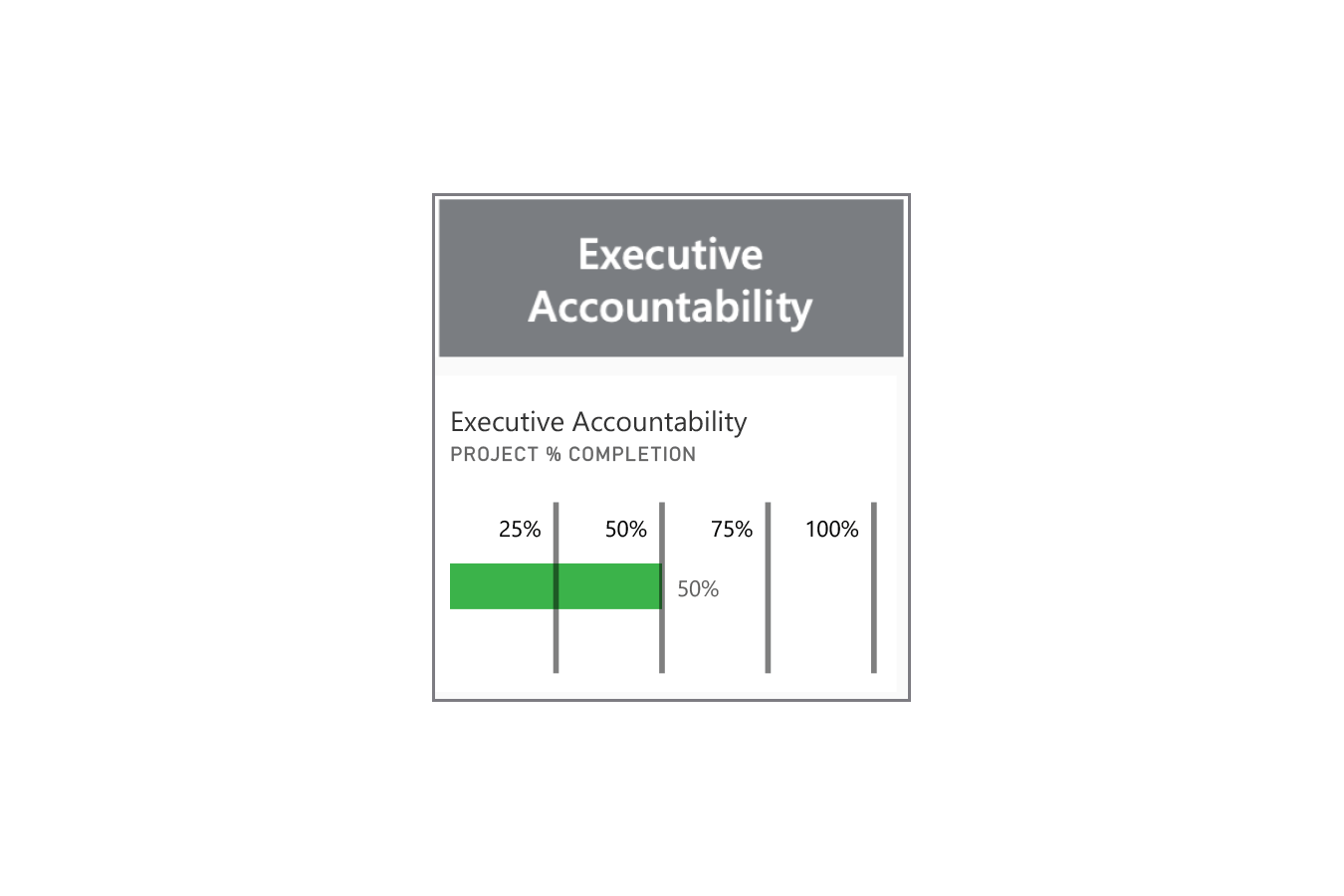
Executive Accountability
Outcome measure
Link executive compensation to achievement of Action Plan outcomes.
May 2023 progress update
The Seattle Children’s Hospital Board of Trustees (the Board) reviewed and adopted a revised equity-related executive compensation model, which includes four equity-related goals represented in the Action Plan. Final goal achievement will be determined on September 30, and executive compensation will be based upon those results. The Board also approved FY23 executive compensation goals in September, which will continue with the same model of 16% of executive compensation being linked to achievement of equity-related goals.
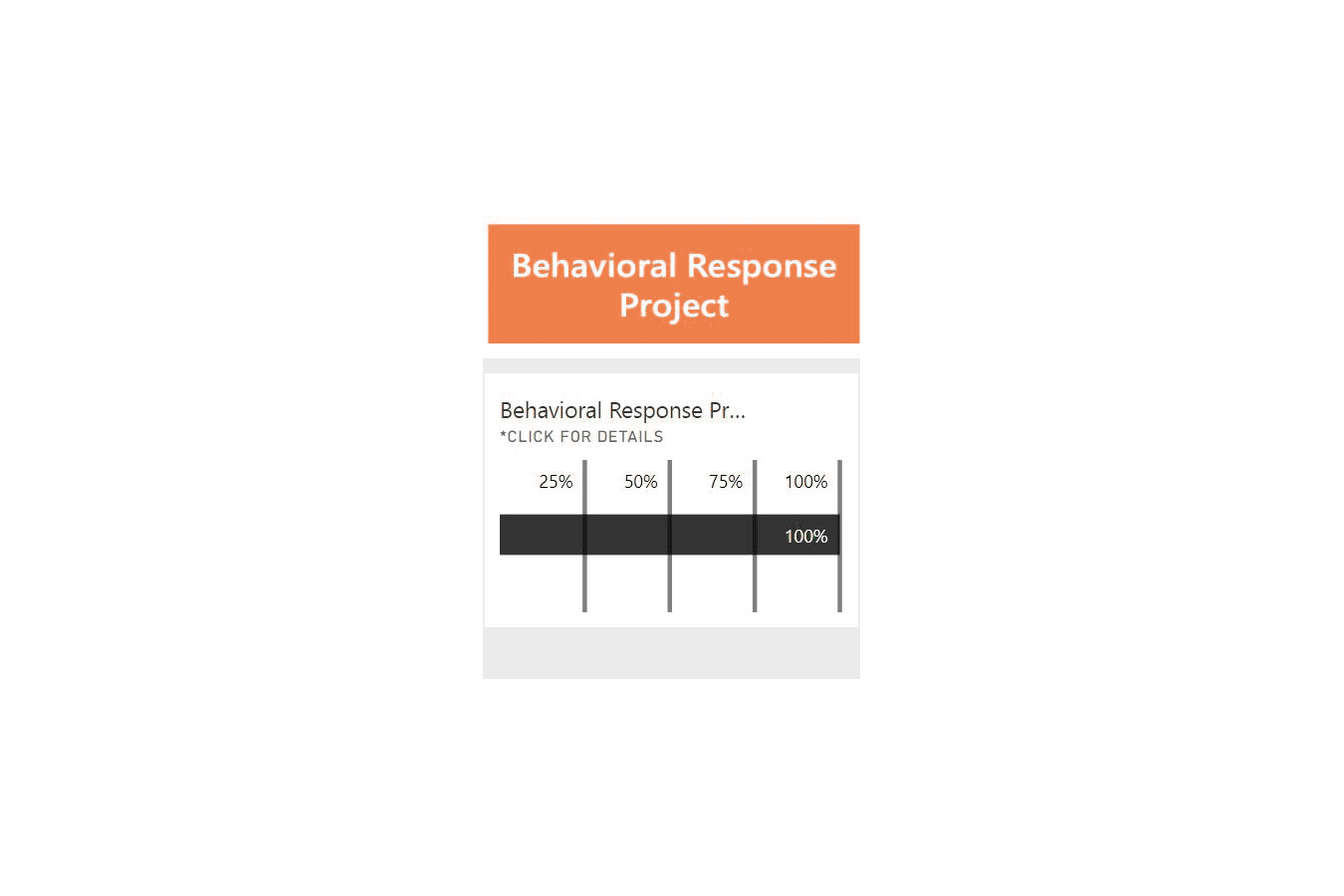
Behavioral Response Project
Outcome measure
The Behavioral Response Project will replace Code Purple with an equitable and anti-racist structure that is co-created with patients and families to ensure it is culturally responsive and provides psychosocial support.
May 2023 progress update
As of January 9, 2023, Code Purple was replaced with a system designed with the partnership and recommendations from workforce, families and community leaders. The new system, Adaptive Social Response, launched at the hospital campus and Springbrook and provides more broad and upstream support, dedicated Center for Diversity and Health Equity consultants and a data tracking system that allows for accountability. The project team is actively monitoring data, expanding data tracking, providing coaching and conducting continuous process and quality improvements, including early intervention if and when disparities arise.
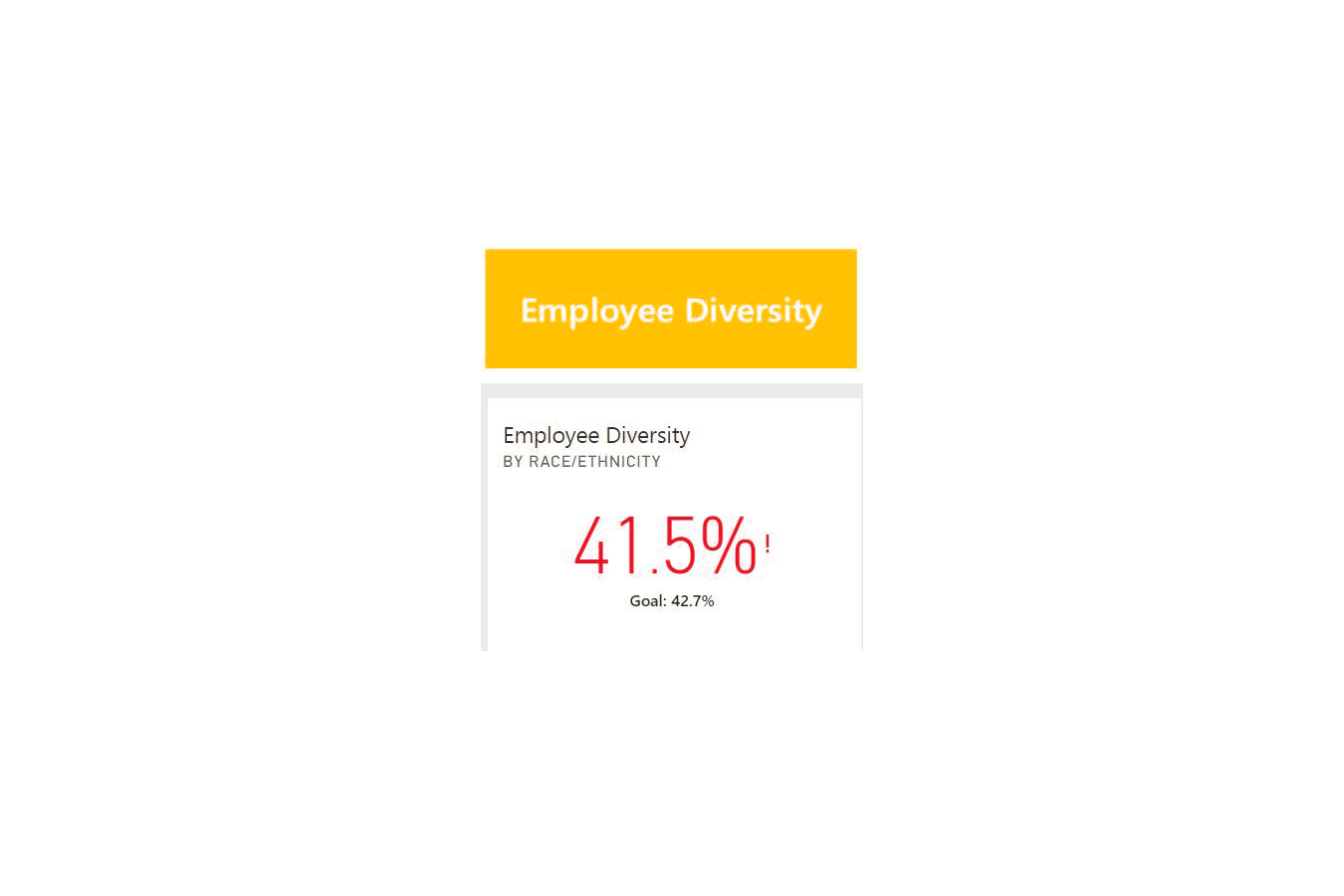
Employee Diversity
Outcome measure
Increase employee diversity by race/ethnicity by 3% to 43.4% through hiring and retention strategies to further reflect Seattle Children’s patient population.
May 2023 progress update
The FY23 goal of 43.4% racial and ethnic diversity is tracked through quarterly milestones. The 41.9% Q2 goal was not met with a result of 41.5%. Ongoing work to increase employee diversity is an org-wide effort and with emphasis on inclusive and equitable hiring practices to help achieve goals. Children's hired 56% racially and ethnically diverse staff as of March 31, 2023. The Engagement and Retention team hired two positions: an Engagement and Retention Consultant and a Program Manager. These roles provide workforce and leader support, update and improve engagement and recognition programs, and accelerate initiatives to support leaders in creating an environment of inclusion and belonging.
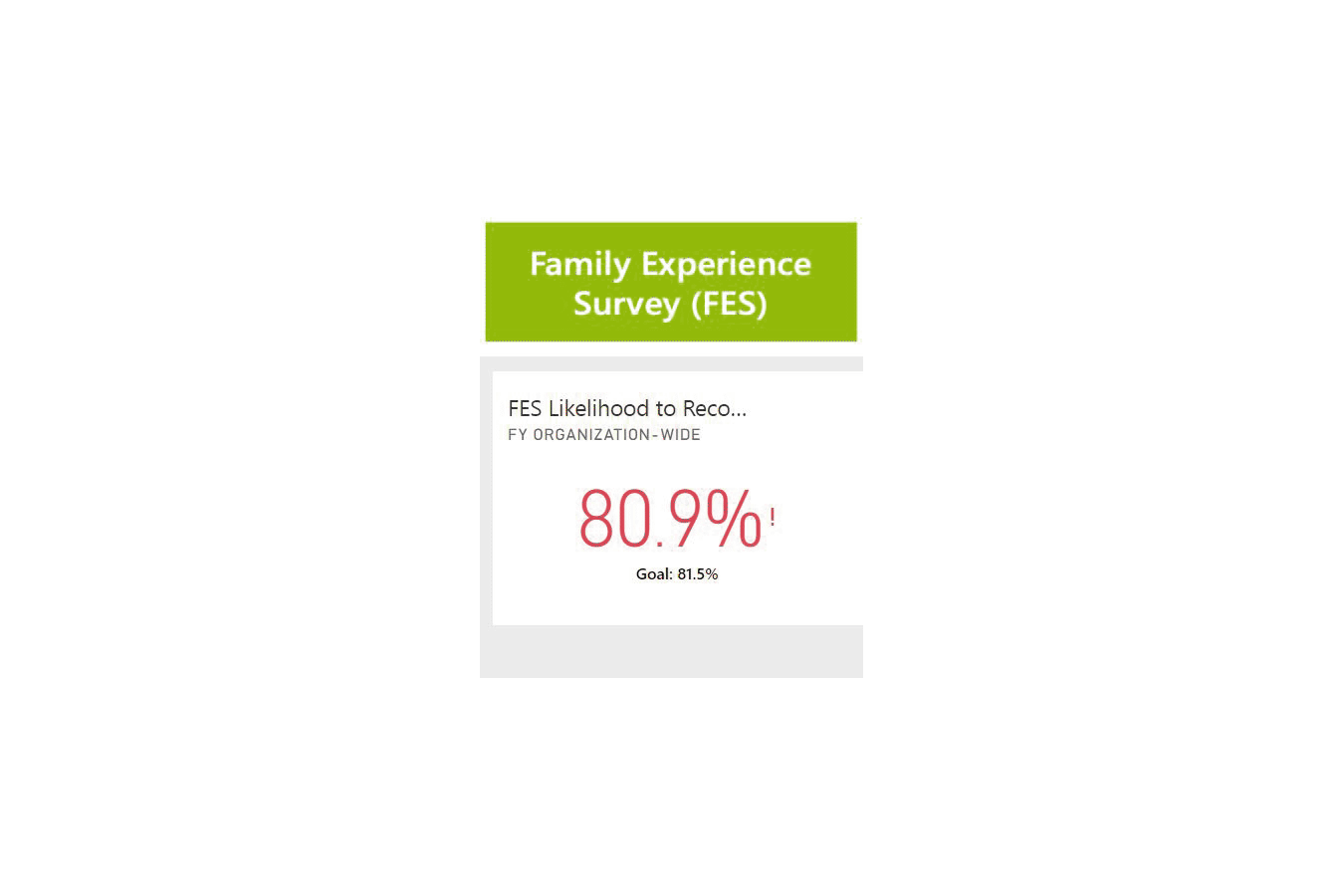
Family Experience Survey
Outcome measure
Achieve score of 81.5% and obtain national race, ethnicity and language (REaL) benchmark data for the Family Experience Survey (FES) from Press Ganey.
May 2023 progress update
The annual goal is set to be attainable by the end of the fiscal year, and results are often red at the beginning of the year. The score is slowly improving which aligns with the end of the tri-demic of RSV, Covid and flu seasons that impacted Emergency Department volumes and wait times.
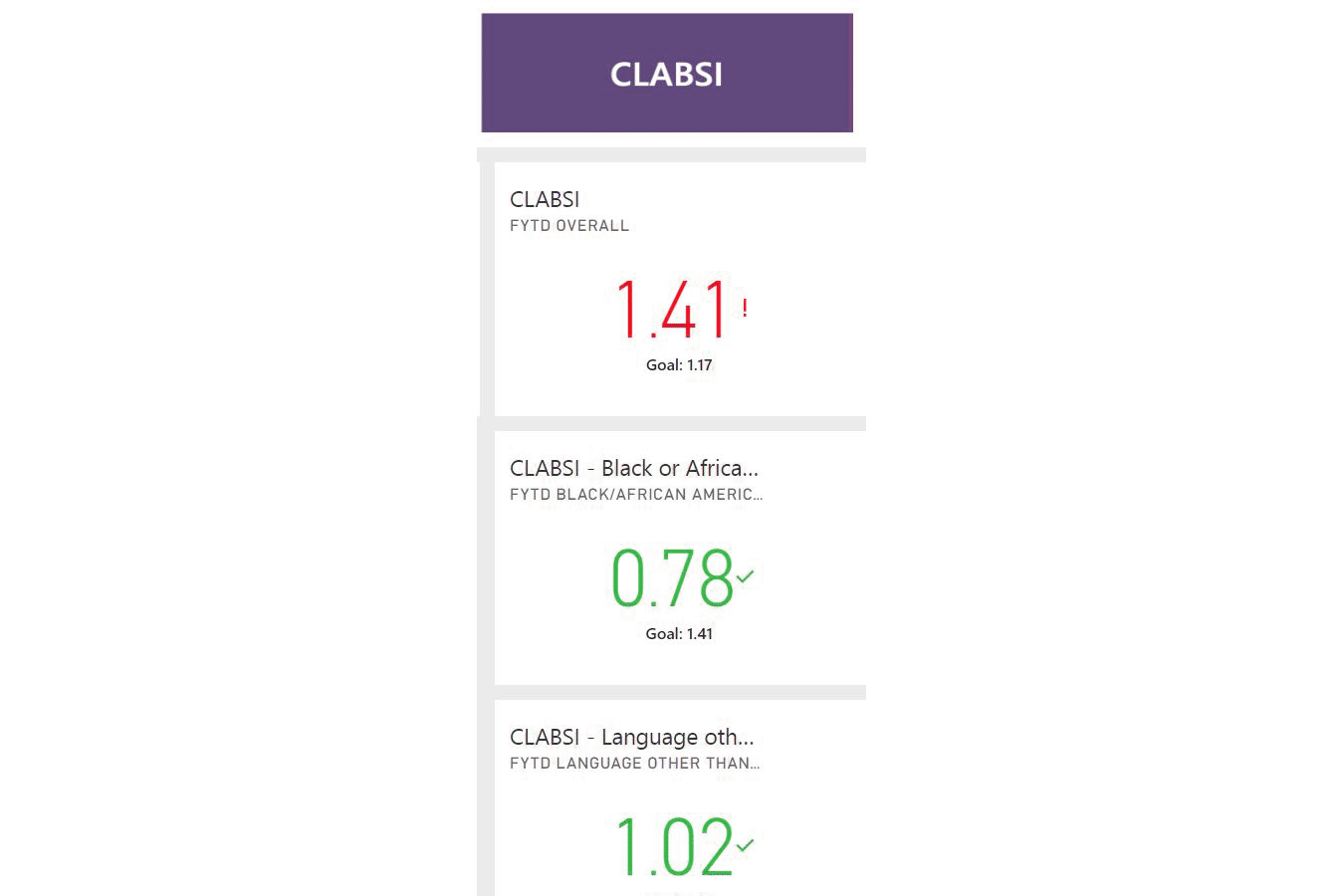
CLABSI
Outcome measure
Decrease overall non-mucosal barrier injury central line associated bloodstream infection (non-MBI CLABSI) rates and eliminate CLABSI disparities. Meet 2 of the 3 components of this goal:
- Decrease overall FY23 CLABSI rate to 1.17 per 1,000 line days.
- Eliminate disparity of CLABSI rates for Black and African American patients.
- Eliminate disparity of CLABSI rates for patients who use a language other than English.
May 2023 progress update
Overall CLABSI rates are trending slightly above target. CLABSI rates for patients who use a language other than English and CLABSI rates for Black and African American patients met the Q2 goal.
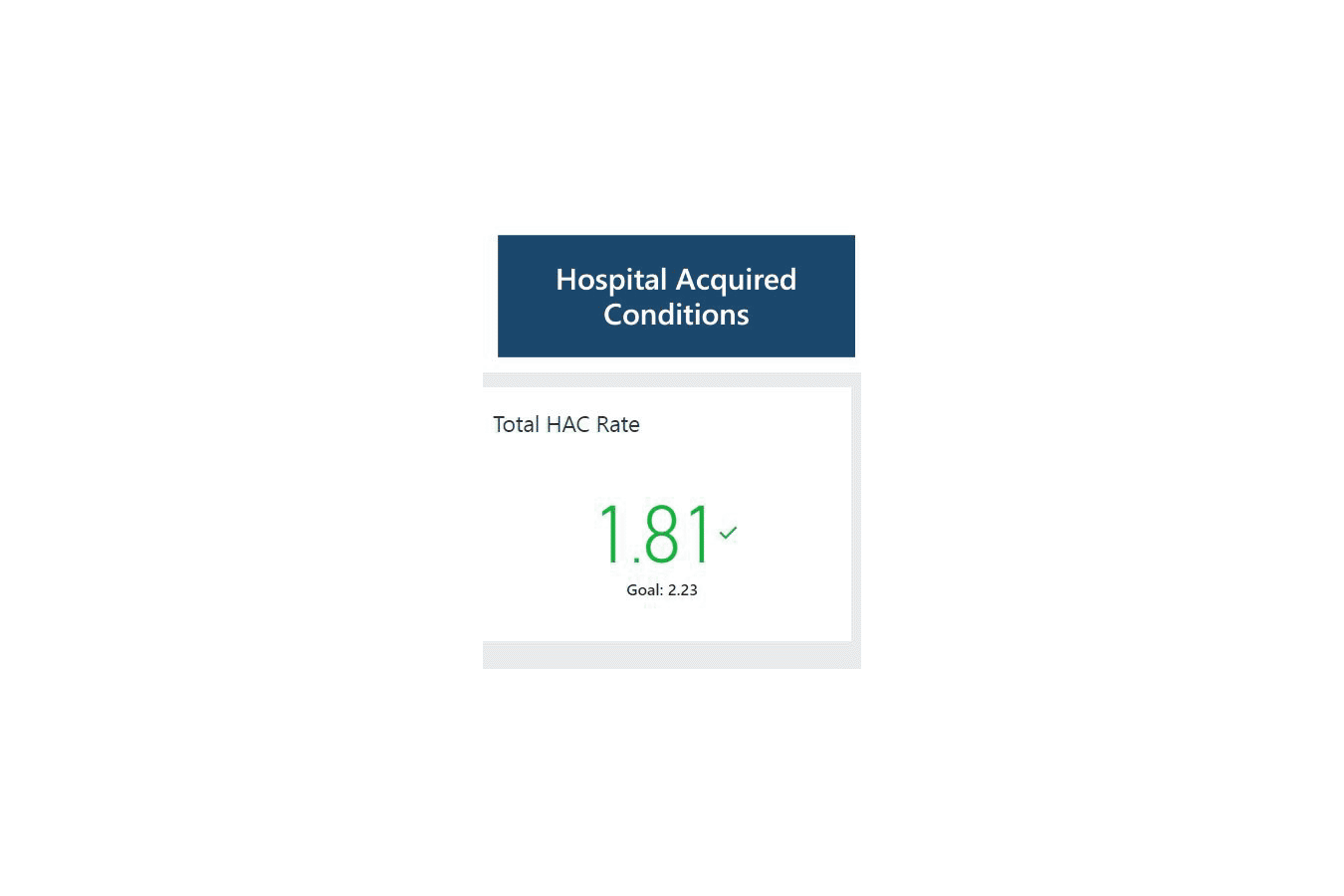
Hospital Acquired Conditions
Outcome measure
Stratify Hospital Acquired Conditions (HAC) rate by race, ethnicity and language (REaL) and maintain or decrease baseline rate of 2.23.
May 2023 progress update
The Hospital Acquired Conditions (HAC) rate is the primary FY23 Clinical Division goal, which expands the focus of harm reduction to include 9 types of hospital-acquired harm. In Q1, the HAC rate was successfully stratified by race, ethnicity and language and will be used to identify disparities and inform quality improvement efforts.
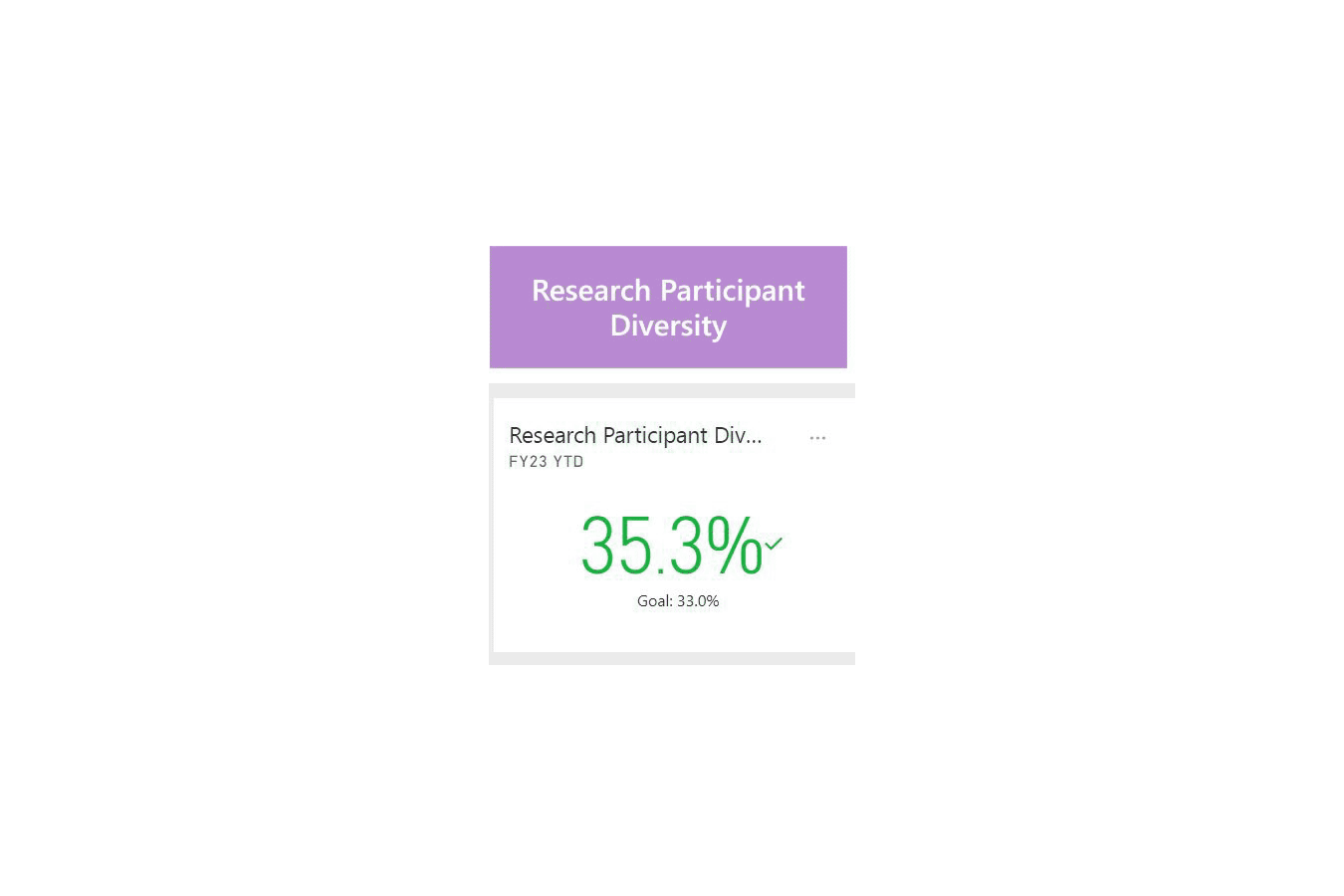
Research Participant Diversity
Outcome measure
Increase enrollment of diverse research participants by 3% to 34% relative to FY22 to further reflect Seattle Children’s patient population.
May 2023 progress update
Focus areas for the new outcome measure focused on increasing research participant diversity include Research Language Office utilization, improvement of demographic data collection, potential data dashboard transition and reconciliation of data discrepancy.

Tracking Progress
Beginning December 2021, Seattle Children’s released Action Plan progress updates on a quarterly basis. Although the plan was released less than a year ago, some areas are showing measurable impact. Other areas require establishing the connections and structure needed to build toward long-term impact. View the latest progress update.
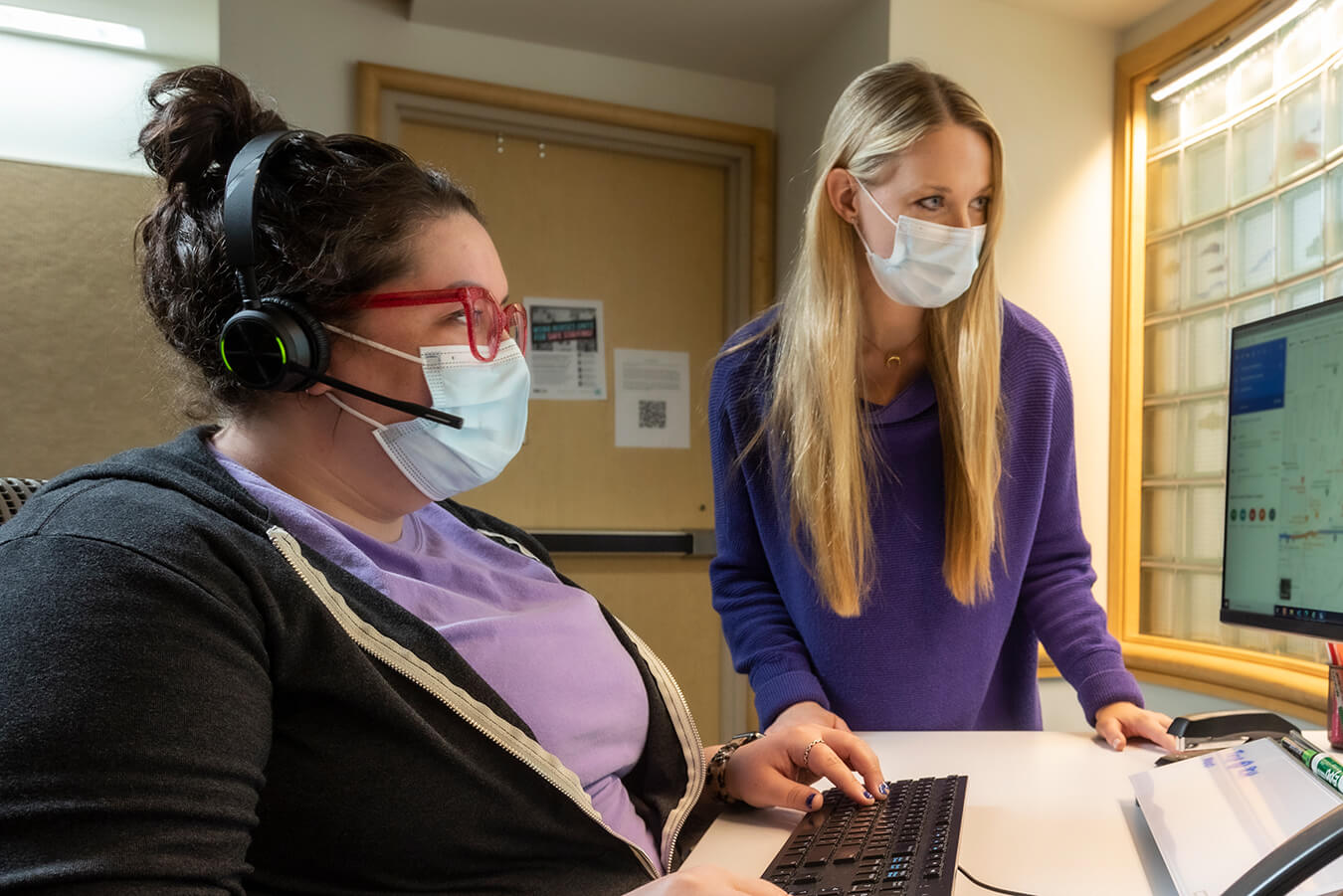
We Are Listening and Want to Hear From You
Seattle Children’s is accountable to the communities it serves. Patients and families are invited to provide feedback on their experience at Seattle Children’s via surveys, and family advisors — parents and caregivers from our community — share their perspectives regularly. We continue to look for opportunities to invite patients and families to help design programs and service delivery to better serve those receiving care. Seattle Children’s workforce and community members also provided feedback on the Action Plan and shared their priorities, and ongoing research tracks parents’ attitudes toward Seattle Children’s.

Leadership and Collaboration
Progress toward becoming a leader in health equity and changing racist systems requires action by individuals, teams and at the organizational level. Accountability for direction setting and making change lies with leaders, but progress would not be possible without workforce and community members including the Action Plan Task Force; Health Equity and Anti-Racism Council and committees; and Seattle Children’s Inclusion Networks.
- Dr. Jeff Sperring, chief executive officer
- Myra Gregorian, chief people officer
- Alicia Tieder, senior director and chief diversity officer
Health Equity and Anti-Racism Action Plan
- Health Equity and Anti-Racism Action Plan (PDF)
- En Español: Plan de acción contra el racismo y por la equidad médica (PDF)
